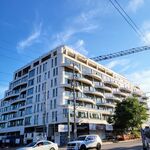spider
Senior Member
OMG, I agree with a Hume column for the first time ever, I just caught a chill, was that Hell freezing over?
The TTC's problems have nothing to do with funding sources or congestion or anything else other than management constipation that doesn't see the need for change to address the fact that it is no longer 1946 out there.
Operators drive a route to suit themselves and management allows them to do so. How else to explain the wagon trains of 3 or more busses or streetcars nose to tail in none rush hour or weekend situations? You don't have to seek out this aberration, it is everywhere all day long. Fixing this is easy, allowing a few heads to roll has a salutary effect.
The TTC's problems have nothing to do with funding sources or congestion or anything else other than management constipation that doesn't see the need for change to address the fact that it is no longer 1946 out there.
Operators drive a route to suit themselves and management allows them to do so. How else to explain the wagon trains of 3 or more busses or streetcars nose to tail in none rush hour or weekend situations? You don't have to seek out this aberration, it is everywhere all day long. Fixing this is easy, allowing a few heads to roll has a salutary effect.




